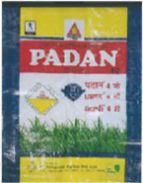- within Intellectual Property topic(s)
- within Intellectual Property, Employment and HR, Litigation and Mediation & Arbitration topic(s)
- with readers working within the Law Firm industries
In a recent decision, the Delhi High Court dismissed a trademark and copyright infringement suit filed by Coromandel Indag Products India Limited (CIPL/Plaintiff) against Sumitomo Chemical Company Limited (Sumitomo) and another defendant, ruling that CIPL lacked the legal standing to pursue the action. The dispute centred on the use and rights over the trademark "PADAN," originally registered and owned by Sumitomo or its predecessor, and licensed non-exclusively to Coromandel Agrico Private Limited (CAPL), a group company of the Plaintiff which is currently under corporate insolvency resolution.
Background of the Dispute
- CIPL, incorporated in 1983 and engaged in the agrochemicals business, claimed to be the parent company of the Coromandel Group, which also includes Coromandel Agrico Private Limited (CAPL), and Agrimas Chemicals Limited.
- CIPL had collaborated with Japan's Takeda Chemical
Industries Limited in the 1980s to launch an insecticide containing
Cartap Hydrochloride, marketed under the trademark PADAN. The
plaintiff alleged continuous use of the PADAN mark and associated
packaging
 in India
since 1988.
in India
since 1988. - In 2001, Takeda entered a joint venture with Sumitomo Chemical, which later merged into the defendant company in 2007. Although supply of the technical component ceased that year, CIPL claimed that it continued using the PADAN mark exclusively in India.
- CIPL alleged that the defendants planned to launch a pesticide
under the PADAN mark using deceptively similar packaging
 which led to the filing
of the suit.
which led to the filing
of the suit.
Defendants' Objections
The defendants sought rejection of the plaint/statement of claim arguing that no cause of action is made out regarding the trademark PADAN, copyright infringement, or passing off.:
- CIPL had no locus standi since the PADAN trademark rights and license were granted to CAPL, not CIPL.
- CAPL was a distinct legal entity under Corporate Insolvency Resolution Process (CIRP) and not a party to the suit.
- The defendant was the registered proprietor of the PADAN mark since 1969, and neither CIPL nor CAPL had ownership rights.
- All evidence of use, sales, and goodwill pertained to CAPL, not CIPL.
- The Plaintiff did not file crucial agreements (Trademark Agreement 2003 and Distribution Agreement 2005) which establishes CAPL as the licensee.
Plaintiff's Stand
- CIPL contended that as the parent company of the Coromandel Group, references to "Plaintiff" in the plaint included all group entities, including CAPL. It also argued that while the defendant held registration for the PADAN mark, it had never used it in India, whereas CIPL claimed continuous use for decades.
- The defendants have abandoned the mark by not using it and not objecting to the plaintiff's use; thus, the plaintiff has acquired goodwill and reputation.
- The defendants' recent use of the mark and packaging is an attempt to ride on the plaintiff's goodwill.
Court's Findings
- The Court reiterated that under Indian company law, each corporate entity is distinct. CIPL could not claim or enforce the rights of CAPL, even as part of the same group.
- CAPL was undergoing Corporate Insolvency Resolution Process, so any legal proceedings on its behalf could be initiated solely by its Resolution Professional.
The Distribution Agreement filed by the defendants indicates that the PADAN license was granted to CAPL rather than CIPL.
- CAPL held only a non-exclusive license, with no proprietary rights or assignment of the mark.
- Any copyright in the packaging assigned to CAPL had expired by law after five years.
- Evidence of use such as invoices and advertisements related exclusively to CAPL, not CIPL.
- Given these facts, the Court found no cause of action for trademark infringement, passing off, or copyright infringement in favour of CIPL.
Comment
The Delhi High Court while rejecting the plaint as vexatious and legally unsustainable also clarified that trademark rights of one group company cannot be enforced by another without proper legal title or assignment. The Plaintiff was held not entitled to sue on behalf of CAPL or claim ownership of the mark PADAN or the packaging artwork.
The judgment highlights the importance of standing of the party to maintain the case, proper filing of documents supporting cause of action, and the legal distinction between licensees and trademark proprietors in intellectual property disputes.
The content of this article is intended to provide a general guide to the subject matter. Specialist advice should be sought about your specific circumstances.


